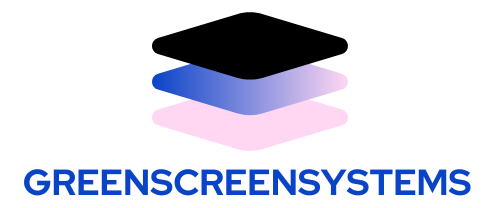Table of Contents
ToggleIn a world where learning can happen in pajamas and coffee breaks are just a click away, virtual tutoring platforms are shaking up the education game. Gone are the days of shuffling through traffic to catch a tutor’s session. Now, students can connect with top-notch educators from the comfort of their own homes, or even while lounging on the couch with a snack in hand.
Overview of Virtual Tutoring Platforms
Virtual tutoring platforms provide accessible educational support. With these platforms, students connect with tutors across various subjects, fostering flexible learning. Online sessions typically occur via video conferencing tools, enabling real-time interaction. Educators on these platforms include professionals and academic peers, offering diverse perspectives.
Many platforms incorporate features that enhance learning experiences. Interactive tools play a crucial role, including digital whiteboards and instant messaging. Tracking progress becomes straightforward, as many platforms enable monitoring of student performance over time. Tutors often customize lesson plans based on individual student needs.
Affordability varies among platforms, catering to different budgets. Some platforms offer subscription models while others charge per session. Popular options include well-known services like Chegg Tutors, Wyzant, and Tutor.com, each providing unique features.
User experiences reflect the platforms’ effectiveness. Results indicate significant improvements in student understanding and grades, especially in challenging subjects like mathematics and science. Personalized guidance instills confidence, promoting better study habits and techniques.
Security remains a priority on these platforms. Many implement encryption protocols and secure payment systems to protect user information. Parental oversight features provide additional peace of mind, ensuring safe learning environments for minors.
With ongoing advancements in technology, virtual tutoring continues to evolve, making high-quality education increasingly accessible. The continual expansion of resources, including multimedia content and specialized tutoring, further enhances learning opportunities.
Key Features of Virtual Tutoring Platforms


Virtual tutoring platforms offer essential features that enhance the educational experience. These platforms prioritize user-friendly interfaces and a rich array of learning tools to engage students effectively.
User Interface and Usability
Intuitive design defines the user interface of leading virtual tutoring platforms. Students easily navigate them, finding features like session scheduling and resource access straightforward. Interactive elements create a seamless experience, allowing students to focus on learning rather than technology. Mobile compatibility ensures flexibility, enabling access from various devices. Clear organization of study materials supports quick retrieval of relevant resources. User feedback contributes to continuous improvement, making platforms more effective over time.
Learning Tools and Resources
Diverse learning tools enhance the tutoring experience on these platforms. Digital whiteboards foster collaboration and concept visualization during sessions. Resource libraries offer videos, articles, and practice exercises for varied learning styles. Real-time messaging supports communication and question clarification between students and tutors. Integration of testing platforms assesses understanding and progress. Specialized tutoring focuses on subjects like mathematics and science, catering to individual needs. Gamification elements motivate students, making learning engaging and fun.
Popular Virtual Tutoring Platforms
Numerous platforms offer quality virtual tutoring services tailored to individual learning needs. Each option presents distinct features that enhance the education experience for students.
Platform A Overview
Chegg Tutors features an extensive selection of subjects, catering to students from elementary to college levels. With a user-friendly interface, it allows learners to connect with qualified tutors in real time. Each session can be scheduled on demand to increase flexibility. In addition, Chegg provides personalized study plans and access to helpful resources. Many students report significant grade improvements after using the platform regularly, making it a preferred choice for dedicated learners.
Platform B Overview
Wyzant stands out for its diverse tutor pool, where students find educators from various backgrounds. The platform encourages personalized matching based on learning styles and subject needs. Users benefit from upfront pricing, enabling them to select tutors within budget constraints. Wyzant also offers the opportunity for students to receive feedback and academic support tailored to individual goals. Many users appreciate the wide range of subjects available and the flexibility of scheduling their sessions.
Platform C Overview
Tutor.com excels in providing 24/7 access to tutoring assistance, ensuring help is available whenever needed. This platform caters to a broad range of subjects and specific academic challenges, promoting convenience for students. Interactive tools, such as virtual whiteboards and document sharing, enhance communication during sessions. Tutor.com emphasizes the importance of personalized learning experiences, resulting in better retention of concepts. Positive reviews highlight the effectiveness of its tutors in boosting student confidence and achievement in academics.
Benefits of Using Virtual Tutoring Platforms
Virtual tutoring platforms offer numerous advantages for students seeking academic support. Flexibility and accessibility stand out as significant benefits, enabling students to learn at their own pace.
Flexibility and Accessibility
Students access virtual tutoring platforms from home or anywhere with internet connectivity. Scheduling sessions becomes easier as learners select times that align with their busy lives. These platforms accommodate various time zones, allowing for session arrangements that work for both students and tutors. Resources are available anytime, providing instant access to learning materials. Mobile apps enhance flexibility, enabling students to learn on-the-go. Flexibility fosters a stress-free learning environment, encouraging students to focus on their studies.
Personalized Learning Experience
Personalization in virtual tutoring creates tailored learning experiences for each student. Educators adjust teaching methods according to unique learning styles, ensuring effective comprehension. Analysis of student progress allows tutors to modify instruction based on individual strengths and weaknesses. Learners receive specific feedback, helping them improve faster in challenging subjects. Interaction with specialized educators enhances understanding of complex topics. Students gain confidence as they master their studies through personalized guidance, leading to better overall performance.
Challenges and Considerations
Virtual tutoring platforms present unique challenges that users must navigate to ensure effective learning experiences.
Technical Issues
Technical issues frequently arise during online tutoring sessions. Internet connectivity problems can disrupt communication, causing frustration for both students and tutors. Compatibility of devices also plays a crucial role; not all platforms work seamlessly across various devices, which can impact accessibility. Furthermore, software glitches sometimes occur with interactive tools, hindering engagement. Users should ensure their devices meet platform requirements, while tutors must be prepared to troubleshoot common technical problems promptly.
Student Engagement
Student engagement remains a significant challenge in virtual settings. Distractions in home environments often affect focus and motivation. Maintaining attentive participation requires strategic approaches, such as incorporating interactive elements into lessons. Educators might use quizzes, multimedia resources, and collaborative tools to foster involvement. Regular feedback can also enhance engagement, helping students feel more connected to their learning. Creating a supportive atmosphere, where questions are welcomed, encourages active participation.




